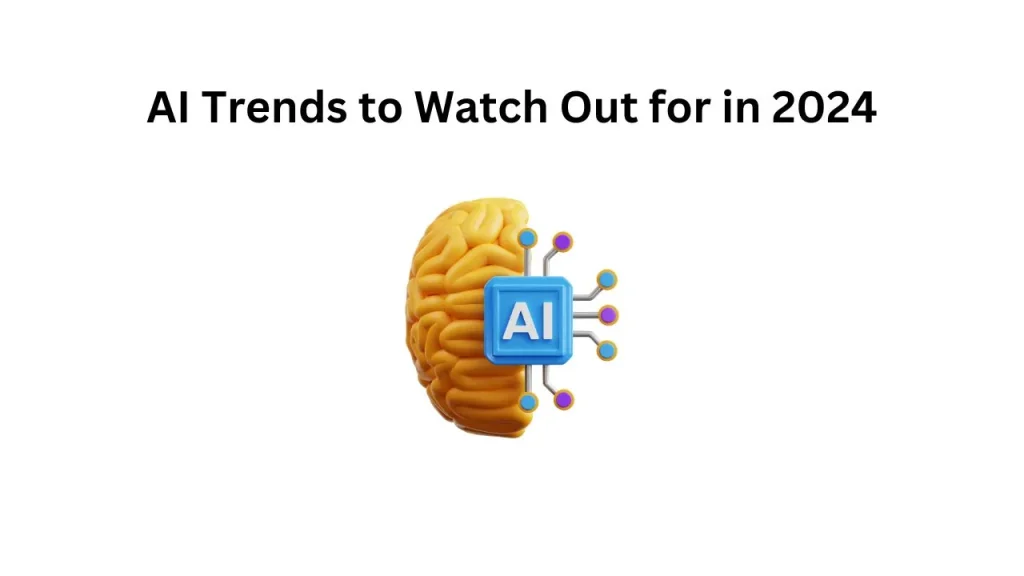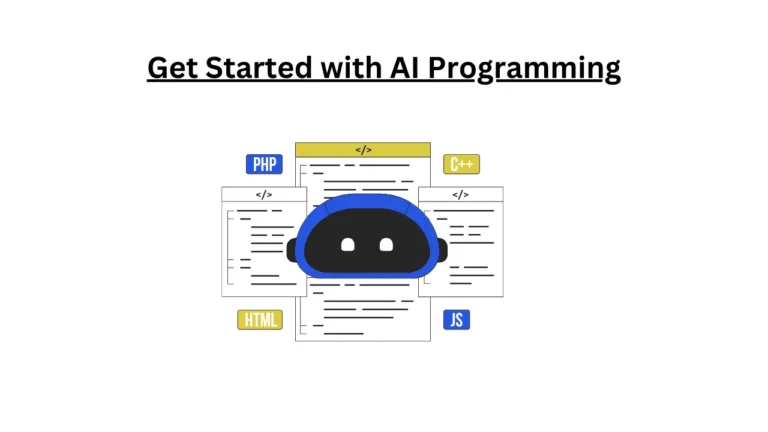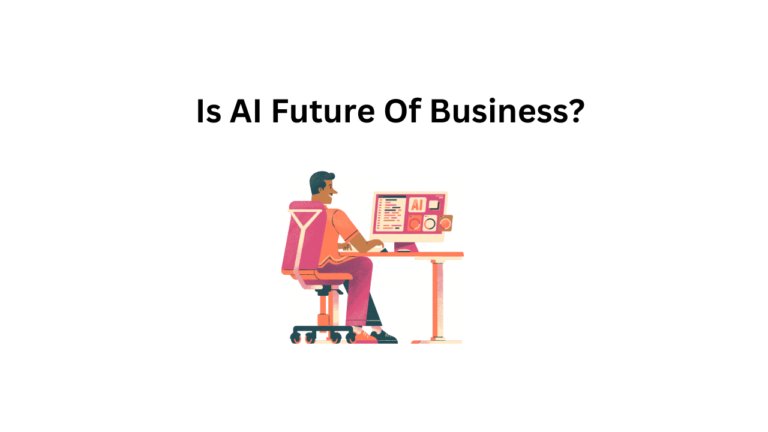Artificial intelligence, often shortened to AI, is like a brain for computers. Just as our brains help us think, learn, and make decisions, AI empowers machines to do the same. But AI isn’t just a futuristic concept from science fiction movies; it’s a real and rapidly evolving technology that’s already changing the world around us. As we look ahead to the year 2024, we’re on the brink of witnessing some remarkable advancements in AI that will shape our future in profound ways.

In this article, we’ll embark on a journey into the realm of artificial intelligence, unraveling the mysteries and marvels of this transformative technology. From understanding how AI can create entirely new content to exploring its role in revolutionizing workplaces, we’ll dive deep into six key trends that are set to redefine the landscape of AI in 2024. But before we delve into these trends, let’s take a moment to understand what AI is all about and why it matters.
At its core, AI is all about teaching computers to think and learn like humans. Just as we learn from experience and adapt to new situations, AI algorithms can analyze data, recognize patterns, and make predictions. This ability to process vast amounts of information at incredible speeds opens up a world of possibilities, from improving healthcare and enhancing transportation systems to revolutionizing how we interact with technology in our daily lives.
As we stand on the cusp of 2024, the future of AI is brimming with promise and potential. Some of them are discussed below
Generative AI
Generative AI represents a leap forward in machine learning capabilities, enabling systems to create original content autonomously. From generating lifelike images to composing music and even crafting engaging narratives, the potential applications of generative AI are boundless. In 2024, we anticipate witnessing even more sophisticated outputs, blurring the lines between human and machine creativity. This trend holds immense promise for industries such as design, marketing, and entertainment, where innovative content creation is paramount.
Multimodal AI
Imagine an AI system capable of understanding and interpreting not just text but also images, sounds, and videos. This is the essence of multimodal AI, a technology poised to revolutionize how we interact with machines and digital content. By integrating multiple modalities of data, AI systems can provide more nuanced responses, personalize user experiences, and deliver enhanced search engine capabilities. As we venture into 2024, expect to see multimodal AI powering immersive virtual environments, interactive assistants, and intelligent search engines, transforming the way we engage with technology.
Democratization of AI
Gone are the days when AI was confined to the realm of experts and researchers. The democratization of AI refers to the growing accessibility of AI tools and techniques, allowing businesses and individuals with varying levels of technical expertise to harness its power. This trend fosters a culture of innovation, empowering entrepreneurs, startups, and small businesses to leverage AI for problem-solving and value creation. As AI becomes more user-friendly and accessible through cloud-based platforms and open-source libraries, the barriers to entry are lowered, paving the way for a new wave of AI-driven innovation across diverse industries.
Rise of Workplace AI
AI’s integration into workplaces is revolutionizing how tasks are performed, data is analyzed, and decisions are made. In 2024, we anticipate witnessing a surge in workplace AI applications, ranging from automated data entry and analysis to predictive analytics and robotic process automation. As AI systems become more adept at understanding and executing complex tasks, they will collaborate seamlessly with human employees, augmenting their capabilities and enhancing overall productivity. From optimizing supply chain management to enhancing customer service, workplace AI is set to redefine how businesses operate in the digital age.
New Applications for AI
The versatility of AI extends far beyond traditional domains, with new applications emerging across diverse industries. In 2024, we anticipate witnessing AI-powered solutions revolutionizing sectors such as agriculture, manufacturing, finance, and healthcare. From precision agriculture and autonomous drones to predictive maintenance and fraud detection, AI holds the key to unlocking efficiency, productivity, and innovation across various sectors. As organizations embrace AI-driven insights and automation, they will gain a competitive edge, driving growth and transformation in the global economy.
Growing Focus on Ethics and Regulation
As AI technologies continue to evolve and permeate every aspect of our lives, ethical considerations and regulatory frameworks become increasingly crucial. In 2024, we expect to see a heightened focus on addressing issues such as bias, privacy infringement, and algorithmic transparency. Governments, industry leaders, and policymakers will collaborate to establish ethical guidelines and regulations, ensuring responsible AI development and deployment. By prioritizing ethical considerations and fostering transparency, we can harness the full potential of AI while mitigating risks and safeguarding societal values.
Conclusion
In conclusion, the year 2024 holds immense promise for the field of artificial intelligence, with transformative trends poised to shape the future of technology and society. From generative AI unlocking new realms of creativity to multimodal AI enhancing user experiences, the possibilities are endless. As we navigate these trends, it’s essential to foster collaboration, innovation, and ethical stewardship, ensuring that AI continues to serve as a force for good in our rapidly evolving world.
FAQs:
How will AI impact job markets in 2024?
AI is expected to automate repetitive tasks, leading to job displacement in some sectors. However, it will also create new opportunities and enhance productivity, reshaping the job market.
What are the ethical implications of AI advancements?
AI raises concerns regarding bias, privacy infringement, and transparency. Ethical considerations are crucial to mitigate risks and ensure AI benefits society responsibly.
Can AI truly replicate human creativity?
While AI can produce creative outputs, it lacks human intuition and emotional understanding. However, it can augment human creativity and streamline creative processes.
Will AI replace human workers entirely?
AI is unlikely to replace human workers entirely but will augment their capabilities. Collaborative efforts between humans and AI will redefine workplace dynamics.
How can businesses leverage AI for competitive advantage?
Businesses can harness AI for data analysis, personalized customer experiences, and process automation, gaining a competitive edge in their respective industries.
What role do regulations play in AI development?
Regulations are essential to ensure ethical AI deployment, protect consumer rights, and foster trust in AI technologies. Government oversight is crucial in balancing innovation with societal well-being.


